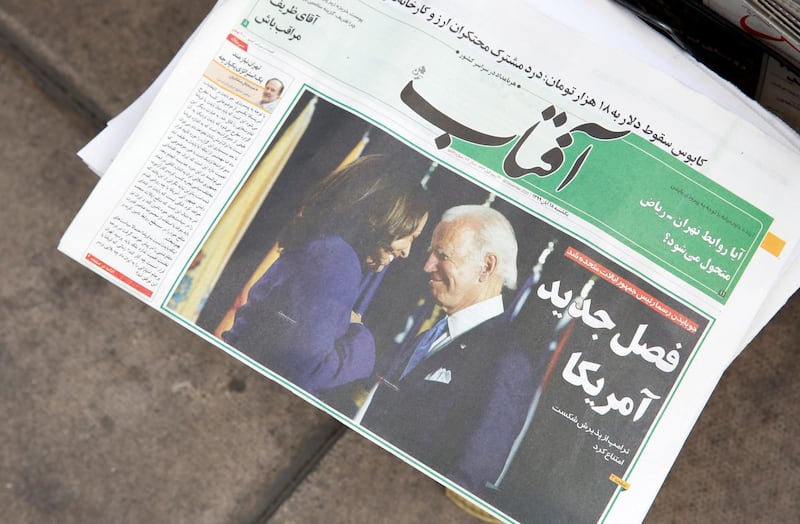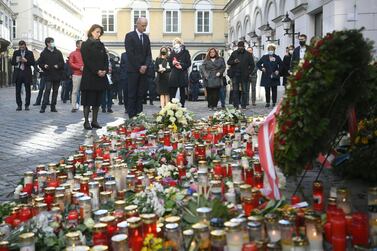To judge by Tehran's response to US President-elect Joe Biden's victory, Iran is entertaining optimistic expectations that the new American administration will renew Washington's commitment to their controversial nuclear deal.
But while it is true that, during the course of the gruelling election campaign, Mr Biden and his supporters intimated that they wanted to reset relations with Tehran, many significant obstacles will first need to be overcome before any meaningful rapprochement can take place.
In the long history of confrontation between Iran and the US, which in recent times dates back to the 1979 revolution and the subsequent long-running hostage crisis, the Democrats have had just as many bruising encounters with the regime as their Republican counterparts.
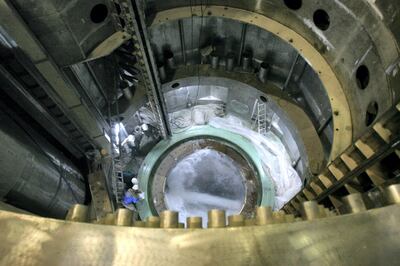
One of the major factors why former Democratic president Jimmy Carter lost the 1980 election was because Iran only agreed to release the 52 American citizens, who had been held captive after the Islamic Revolutionary Guard Corps stormed the US embassy compound, after the 1980 election race had been concluded.
The constant images broadcast on American television of the hostages during the election played a significant factor in Ronald Reagan, the Republican candidate, ultimately securing victory.
Bill Clinton is another former Democratic president who had to contend with Iran’s malign activities in the region after Imad Mughniyeh, the Hezbollah terrorist mastermind who worked closely with the IRGC, was implicated in the 1996 Khobar Towers suicide truck bomb attack in Dhahran that killed 19 people.
Even former US president Barack Obama, who Mr Biden served for eight years as vice president, came to understand the frustrating reality of trying to encourage Tehran to behave more responsibly on the world stage.
Despite investing a great amount of personal political capital in persuading Iran to sign up to the Joint Comprehensive Plan of Action (JCPOA), the nuclear deal’s official title, in 2015, Mr Obama was ultimately disappointed by Iran’s attitude once the deal had been completed. He had hailed the deal as offering the promise of a “more hopeful world”, and remarked that: “This deal offers an opportunity to move in a new direction. We should seize it.”
But rather than heralding a new era of constructive engagement on the part of Iran with its Middle East neighbours and the West, the deal marked the start of a new campaign by the IRGC to expand its influence in the region, as well as intensifying efforts to develop sophisticated missile technology, which was not covered by the terms of the JCPOA.
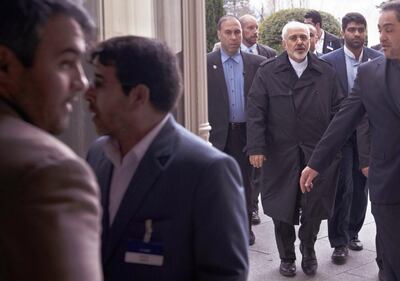
Mr Biden and his supporters will be well aware of the profound disappointment the Obama administration felt. As a consequence, the President-elect is likely to tread cautiously in any effort the new administration might make to re-engage with the JCPOA framework.
Indeed, there are many reasons why, even if Mr Biden wanted to restore the deal, it is unlikely to be a straightforward process.
For a start, the uncompromising tone adopted by senior representatives of the regime after Mr Biden claimed victory suggests that Iran will seek to dictate the terms in any future negotiations relating to its nuclear activities.
Even before the outcome of the US presidential contest had been decided, Ayatollah Ali Khamenei, the country’s Supreme Leader, had tweeted disparaging remarks about the entire American electoral system, declaring that, “this is an example of the ugly face of liberal democracy in the US. Regardless of the outcome, one thing is absolutely clear: the definite political, civil, and moral decline of the US regime”. In another speech denouncing the US, Mr Khamenei argued the election result would have "no effect" on Tehran's policies stating that "Iran followed a sensible and calculated policy which cannot be affected by changes of personalities in Washington".
What a spectacle! One says this is the most fraudulent election in US history. Who says that? The president who is currently in office. His rival says Trump intends to rig the election! This is how #USElections & US democracy are.
— Khamenei.ir (@khamenei_ir) November 4, 2020
Meanwhile, President Hassan Rouhani, who played a key role in the JCPOA negotiations, warned that Mr Biden should make amends for President Donald Trump’s policies towards Iran. Mr Biden’s victory, he said, was “an opportunity for the next US government to make up for past mistakes and return to the path of adhering to international commitments with respect to global rules”.
Moreover, with Iran due to hold its own presidential election contest in June next year, the hardliners will be looking to consolidate their position by maintaining their uncompromising stance towards the US, irrespective of who occupies the White House.
There are many other significant obstacles that are likely to impede any attempt to revive the JCPOA, not least of which are Iran’s own violations of the accord, such as its recent decision to resume work on uranium enrichment.
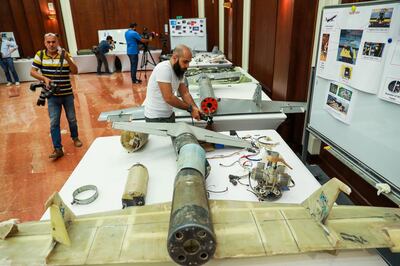
In addition, Iran has been accused of building a new network of bomb-proof underground bunkers to store its nuclear facilities. Work has also continued to develop a variety of sophisticated weapons systems, including ballistic missiles. Many of the military drones, for example, used by Houthi rebels in Yemen to attack targets in Saudi Arabia have originated from Iran.
The other important consideration the incoming administration will need to take on board in any attempt to re-engage with Tehran will be the potential adverse effect it could have on Mr Trump’s success in reviving the Israeli-Arab peace dialogue.
The establishment of diplomatic ties between Israel and the UAE, Bahrain and Sudan heralds the possibility of a more peaceful era in the region. But all that good work could be undermined if, rather than building on the success of the Abraham Accords, the President-elect instead tries to establish a dialogue with an uncompromising Iran, the one country that is fundamentally opposed to any diplomatic ties between Israel and the rest of the region.
Con Coughlin is a defence and foreign affairs columnist for The National
